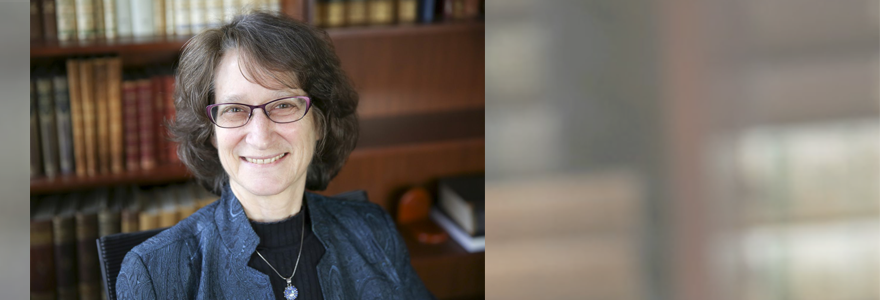News and Updates
Contact
Faculty of Social Science
Social Science Centre
Room 9438
Western University
T. 519-661-2053
F. 519-661-3868
E. social-science@uwo.ca
States of Fear: How the Quest for Security has Eroded Democracy
September 17, 2018
How does fear impact the health of a democracy? Can the belief in a common good exist and thrive when a population is focused on fear?
These are some of the questions to be examined through this year’s Joanne Goodman Lecture series in the Department of History.
Elaine Tyler May, Regents Professor of American Studies and History, and Chair of the Department of History, at the University of Minnesota, will present this year’s Joanne Goodman Lectures, entitled “States of Fear: How the Quest for Security has Eroded Democracy”.
Over the course of three lectures, May will investigate the increase in public fear in the United States, and how this has impacted political involvement and the health of democracy.
In the first lecture, “Sex, Women, and the Bomb: Cold War Domesticity”, May will speak about how, in the 1950s, people tried to turn their fears of nuclear power and possible nuclear war into something they could manage.
While there was deep fear about nuclear weapons, some of the symbolic references to the atomic age sought to tame the danger and turn it into excitement, particularly with sexualized images. For example, a government pamphlet illustrated the alpha, beta, and gamma rays that comprised fallout with drawings of female bathing beauties.
In the second lecture, “The Quest for Security: Fear and its Consequences”, May looks at the 1960s, as fear of communism and nuclear attack was transferred into fear of bodily harm, particularly by dangerous strangers often depicted as African American men. Like fears of communists, fears of criminals prompted individuals to take responsibility for their own personal protection. Believing that government or official law enforcement would not be able to protect them, May says that people felt that “they were on their own to protect themselves.”
In the 1950s, many people felt the government would not be able to protect them from the dangers of nuclear attack. In the 1960s, many people began to believe the government could not protect them from crime.
“These things had no basis in reality,” May said. Although the media was filled with warnings that women should avoid public streets, especially at night, and stay at home to be safe, in fact women were much safer out in the streets than in their own homes, where most violence against women took place.
The idea of individual self-reliance to achieve security had political implications, May said. Although the violent crime rate declined in the last decade of the 20th century, fear of crime continued to rise. Rather than looking to the government or the public arena to provide safety and security, many Americans believed that they had to protect themselves. Americans became increasingly preoccupied with fear of crime when in fact that danger was miniscule. Unwarranted fear of violent crime distracted people from the real dangers facing them, such as the rapidly increasing gap between the very wealthy and everyone else – an income gap that posed, and still poses, a true threat to individual security.
The third lecture looks at the impact of the 9/11 attacks which, May said, brought about the revival of fears that existed during the Cold War.
“The fear of crime had caused a shift in the way people live in the 1990s,” said May. “By 9/11, you have a fearful population that turns its fear to a new focus.”
After 9/11, people in the United States became fearful of terrorism, and possible enemies in their midst. This is similar, May said, to the fear of communism during the Cold War.
Fear, May said, leads to people taking actions that they believe will make them safer, such as an increase in gun ownership, an increase in gated communities, and purchasing SUVs. But data clearly shows that none of these actions make anyone safer – in fact they make people more vulnerable to harm.
When Americans retreat from public life, turn away from the public good, and distrust their fellow citizens, May argues, democracy withers. “We can’t have a functioning democracy if people don’t trust their fellow Americans, and if citizens don’t believe that their government represents the will of the people.”
“The things that would make them safe – participating in democracy and civil society – have gone by the wayside, as people increasingly turned to a bunker mentality.”
Beyond simply presenting lectures on the topics, May is interested in hearing from audience members.
“I think Canadian audiences will have a different take on all this, and I will be listening to learn how these issues resonate in Canada,” said May.
“I’m really looking forward to being in conversation with Canadians on these topics,” said May, “and to learn new perspectives on these issues.”
The Joanne Goodman Lectures will take place October 2, 3 and 4, in the Great Hall. The lecture series was established in 1975 by the Honourable Edwin A. Goodman and his family of Toronto to perpetuate the memory of their beloved elder daughter, a second year History student who died in a highway accident in April of that year.

